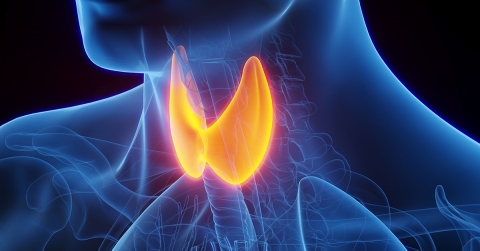Thyroid Health and Heart Rhythm Disorders: Understanding the Connection

Your thyroid plays a crucial role in regulating several functions in your body, including metabolism, energy levels, and even your heart. Both hyperthyroidism (an overactive thyroid) and hypothyroidism (an underactive thyroid) can have significant effects on heart health, particularly when it comes to heart rhythm disorders. Understanding the connection between thyroid health and heart rhythm disorders can help patients take proactive steps in managing their health.
Hyperthyroidism and its impact on heart rhythms
When the thyroid produces too much thyroid hormone, it accelerates your metabolism and can have a profound impact on your heart. Hyperthyroidism is often linked to conditions like atrial fibrillation (AFib), a common heart rhythm disorder. AFib occurs when the upper chambers of the heart (the atria) beat irregularly, disrupt the normal rhythm, and reduce the heart’s ability to pump blood effectively.
The increased levels of thyroid hormone can lead to an overactive heart by increasing heart rate and causing palpitations, which can feel like a fluttering or racing heart. This increased heart rate can also cause the heart to work harder, which can lead to heart failure over time if not managed properly.
If you have hyperthyroidism and are experiencing symptoms such as irregular heartbeats, shortness of breath, or chest pain, it’s crucial to talk to your healthcare provider. Managing thyroid hormone levels can help regulate heart rhythm and prevent further complications.
Hypothyroidism and its impact on heart rhythms
On the flip side, hypothyroidism, when the thyroid does not produce enough thyroid hormone, can also affect heart rhythms. One of the most common impacts is bradycardia, or a slower-than-normal heart rate. When the thyroid is underactive, it can slow the metabolism, which in turn slows down the heart. This can lead to symptoms such as fatigue, dizziness, or fainting.
Hypothyroidism can also contribute to the buildup of cholesterol in the arteries and lead to an increased risk of coronary artery disease, which can, in turn, affect heart rhythm. As cholesterol accumulates and blocks blood vessels, it can lead to further strain on the heart and result in heart rhythm problems.
Managing hypothyroidism is key to maintaining a healthy heart. Thyroid hormone replacement therapy can help regulate hormone levels and improve heart rate and rhythm.
How thyroid conditions impact heart health beyond rhythm disorders
Beyond heart rhythm issues, thyroid disorders can impact overall heart health in a variety of ways. Both hyperthyroidism and hypothyroidism can contribute to higher blood pressure, increase the risk of heart failure, and affect the structure and function of the heart over time. Regular monitoring of thyroid function and heart health is essential for patients managing these conditions.
What you need to know about thyroid and heart health
If you have a thyroid condition, it’s essential to monitor both your thyroid hormone levels and heart health. Work with your healthcare provider to ensure that your thyroid treatment plan is effectively managed. Regular checkups and heart screenings can help catch any potential heart rhythm problems early and allow for prompt intervention and management.
At the Heart Rhythm Institute at Oklahoma Heart Hospital, we specialize in diagnosing and treating heart rhythm disorders, including those related to thyroid conditions. If you’re experiencing symptoms like irregular heartbeats, fatigue, or chest pain, don’t wait – schedule a consultation with our expert team today.




